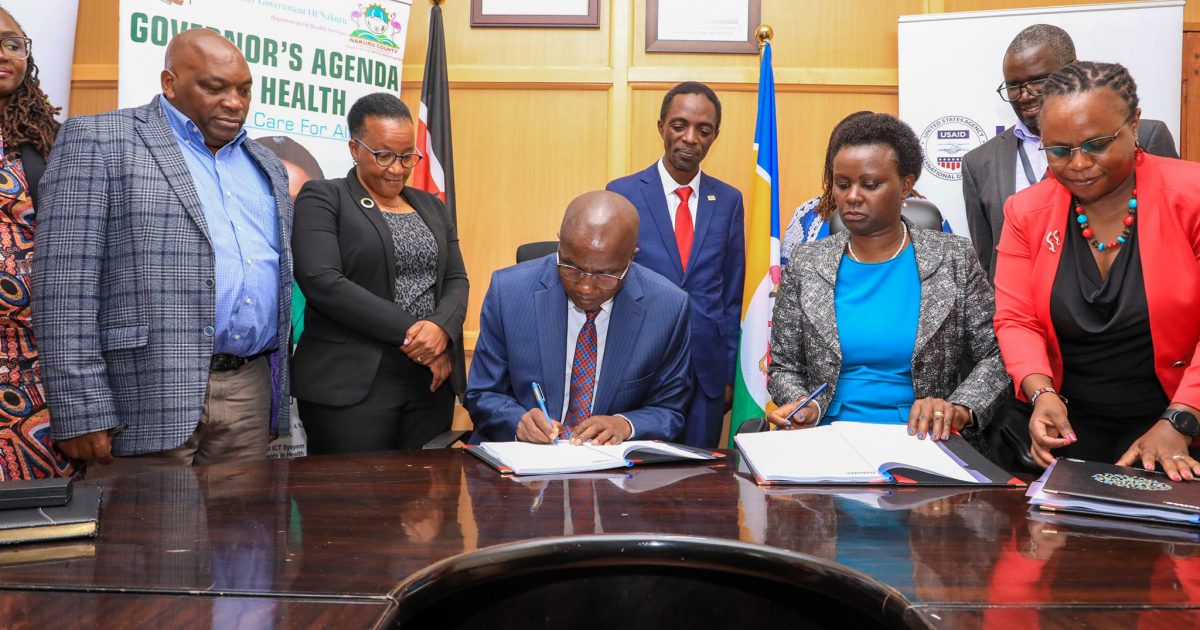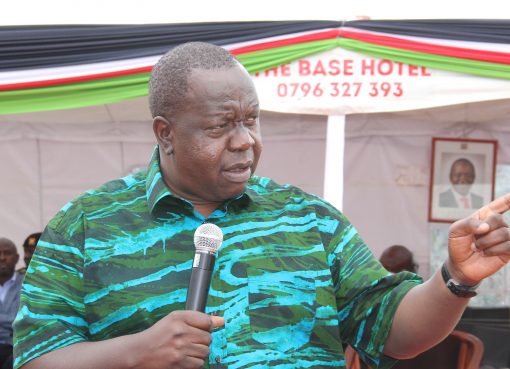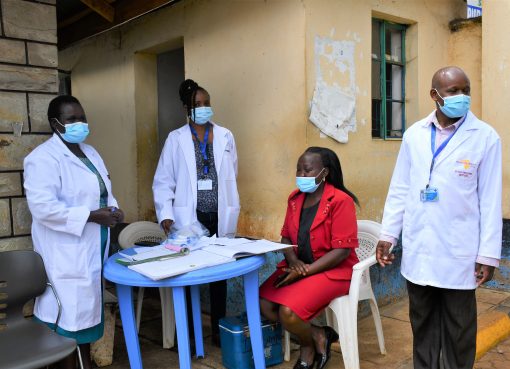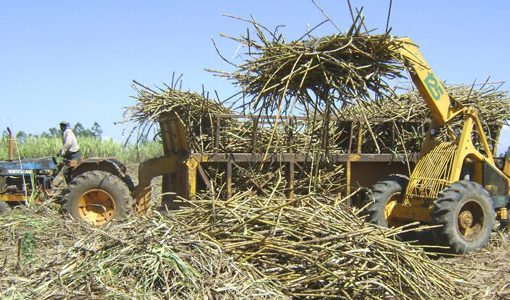The grant awarded through the USAID Tujenge Jamii program will be used to broaden the county’s capacity to improve maternal and child health interventions and quality of care at primary health facilities.
Deputy Governor David Kones said through the programme that has been running since March 2021, the County Government has been able to provide public health care facilities and health care workers with resources and incentives to deliver quality services efficiently.
Kones, who disclosed that the Sh25 million grant, awarded to run from October 2024 to August 2025, supplements the Sh44 million grant that was received in July 2023 under the same programme, spoke when he signed for the award at the County headquarters.
According to the Deputy Governor, the funds will also be channelled towards bolstering critical health programmes across all sub-counties, focusing on tuberculosis, HIV, family planning, maternal and child health, nutrition, and water and sanitation improvements.
“This financial support strengthens the Governor Susan Kihika administration’s commitment to improving healthcare services and systems. We have been working with USAID and Deloitte and Touche LLP, among others, who have been providing technical expertise and oversight during implementation of the project,” Kones pointed out.
USAID Tujenge Jamii (UTJ) is a five-year (March 2021-2026) project made possible by the support through the United States Agency for International Development (USAID) and the U.S. President’s Emergency Plan for AIDS Relief (PEPFAR).
The project is being implemented through Deloitte and Touche LLP and Goldstar Kenya (GSK) to strengthen health and human capacities in Nakuru, Baringo, Laikipia, and Samburu counties.
It focuses on the delivery of HIV, Reproductive, Maternal, Newborn, Child, and Adolescent Health (RMNCAH), Water Sanitation and Hygiene (WASH), and nutrition services.
In Nakuru, the project is implementing HIV prevention, care, and treatment services, RMNCAH, WASH, and nutrition, while in Baringo, Laikipia, and Samburu counties, the project is implementing HIV prevention, care, and treatment services only.
Kones stated that the devolved unit’s leadership had put in place structures and policies that enhance the impact of public expenditure on health by establishing a direct link between the funding for health care and delivering health services of the defined quantity and quality, especially high-impact interventions for accelerating the attainment of health goals.
The Deputy Governor, who was flanked by County Executive Committee Member (CECM) for Health Services Ms. Roselyn Mungai, USAID Tujenge Jamii Programme Chief of Party Dr. Moses Kitheka, USAID Agreement Officer’s Representative (AOR) Mr. Dunstan Achwoka, and Director at Deloitte and Touche LLP Ms. Bernadette Wahogo, said the devolved unit had through public-private partnerships rolled out several initiatives focusing on closing gaps in health service delivery.
“This latest award further highlights Nakuru’s pioneering role in public health administration, following comprehensive compliance health systems strengthening to enhance financial accountability under USAID’s Fixed Amount Award Mechanism,” Kones indicated.
The signing of the award was also witnessed by County Secretary Dr Samuel Mwaura and Chief Officer for Medical Services Dr John Murima.
The Deputy Governor added that the County has continued to allocate a lion’s share of resources to the health sector, with the department receiving Sh6.8 billion allocation in the current financial year.
USAID Tujenge Jamii Program Chief of Party Moses Kitheka explained that the project activities are structured with a purpose to increase use of quality county-led, county-owned, and county-managed health and social services.
Dr. Kitheka said the project objectives included strengthening the capacity of county health systems, local partners, and communities to deliver quality health services and increasing access and demand for quality HIV prevention services.
“We are also committed to increasing access and demand for quality HIV treatment services and increasing access and demand for quality Maternal, Newborn, Child, and Adolescent Health (RMNCAH), Water Sanitation and Hygiene (WASH), and nutrition services,” he added.
USAID launched 13 new health programmes in 2021 that are currently being implemented by local organisations under an initiative called Kenya Health Partnerships for Quality Services.
CECM for Health, Ms. Mungai, hailed the collaboration with USAID Tujenge Jamii, adding that it had complemented her department’s efforts in enhancing health service delivery across Nakuru County.
“While we have faced challenges, our teams have overcome most of them through strong partnerships and innovative solutions,” she remarked.
To ensure improved planning and implementation of the Sh25 million grant programme, the county will constitute financial advisory committees involving both parties and prioritise the next co-creation process for a more integrated approach at both the sub-county and county levels.
Ms. Mungai noted that a significant focus will be on integrated supportive supervision at the sub-county level. The teams, she affirmed, plan to develop a responsible, accountable, consulted, and informed (RACI) matrix at both the County and Sub-County Health Management Team (SCHMT) levels to ensure clear roles and accountability.
By Jane Ngugi





